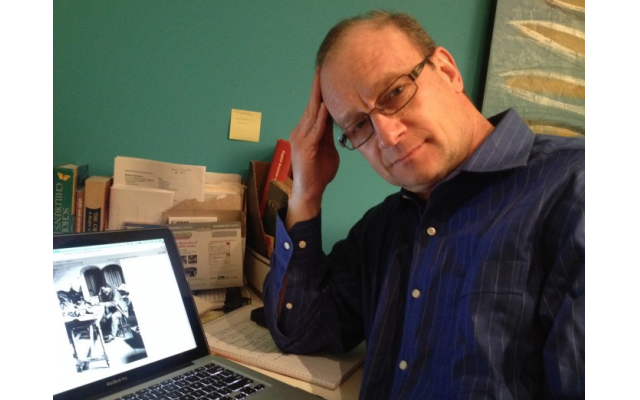To Congregate and Worship Without Fear
How best to cope with the tragedy in Pittsburgh? You lean toward what you know is good.
Dave Schechter is a veteran journalist whose career includes writing and producing reports from Israel and elsewhere in the Middle East.
We were southbound Saturday morning on Interstate 85, about 10 miles from our destination in Montgomery, Alabama, when a text from our journalist daughter alerted us to the breaking news from Pittsburgh.
By the time we arrived downtown at The Legacy Museum, news reports spoke of multiple casualties at the Tree of Life synagogue.
When we met up with other members of our congregation, most were unaware of the unfolding tragedy and were horrified to hear that Shabbat morning services, including a brit milah ceremony, had been attacked by a gunman.
One in our group, whose family has roots in the Squirrel Hill neighborhood, told us about its closely-knit Jewish community.
The Legacy Museum is an intense experience, a multi-media presentation of hate based solely on skin color, from the cruelty of slavery and the barbarism of lynchings to the consequences of mass incarceration, all packed into a relatively small space that heightens visitors’ reactions.
There is an inescapable comparison to the United States Holocaust Memorial Museum, in Washington, D.C., a much larger building with a similar message, of how hate based solely on religion led to mass murder on a scale so incomprehensible that defining it required the creation of a word – genocide.
As I walked through The Legacy Museum, I could not resist checking my Twitter feed for updates from Pittsburgh on this violent manifestation of the oldest hatred.
Several blocks away, we toured the National Memorial for Peace and Justice, with its rust colored metal frames bearing the names (if available), and dates of men, women and children lynched – organized by states and counties, including 35 in Fulton County, many from September 1906, when Atlanta was consumed by race riots.
As we drove north toward home, still listening to the news, we learned more about the alleged gunman and his history of anti-Semitic online posts, including one just before his rampage through the synagogue that said “I’m going in.”
Our conversation kept returning to one point: Just as it had in Pittsburgh, where synagogue doors were open to welcome Shabbat morning worshippers, this could happen in Atlanta.
Some congregations hire off-duty police officers to be present for all services; some don’t, unless it’s the High Holy Days or another special occasion.
Cathal Lucy, a 25-year-veteran of the U.S. Secret Service, is Director of Community Wide Security for the Jewish Federation of Greater Atlanta. His expertise is available to any congregation, school, or communal organization that wants to review or upgrade its security.
Lucy is fond of saying that “security is a living and breathing thing, a function that we have to participate in daily.”
If security was not a priority for every Jewish institution before Saturday, Oct. 27, it must be now.
Atlantans with long-standing ties to Pittsburgh, to Squirrel Hill, and the Tree of Life synagogue are hurting, aching for the shul, the neighborhood, and the city. They have read the list of the dead and recognized names, some of people they knew personally.
This is an occasion when “Jewish geography” is less a game than a reckoning, a reminder that however much Jews have achieved in this country, however much this country is home, an element in the population hates Jews, and would do Jews harm, solely because they are Jewish.
In his comments after the massacre, President Donald Trump, whom critics contend has helped foster an environment in which speaking and acting hatefully has become acceptable, remarked that the events in Pittsburgh were “unimaginable.”
In its past and in its present, the Jewish community knows otherwise.
How should we respond?
Beth Gluck, the Southern Zone Director of the Jewish National Fund, who grew up in Squirrel Hill, offered sound advice: “It’s really not a time to lean left or lean right. It’s a time to lean toward what’s good, toward what’s family. You don’t lean to the extremes. You lean to the healthy, vibrant center and you lean toward what you know is good.”
For the dead, let us say, may their memory be for a blessing.
For the living, let us not be afraid, let us not hate, but let us be aware and take sensible actions that allow us to congregate, and to worship, without fear.




comments